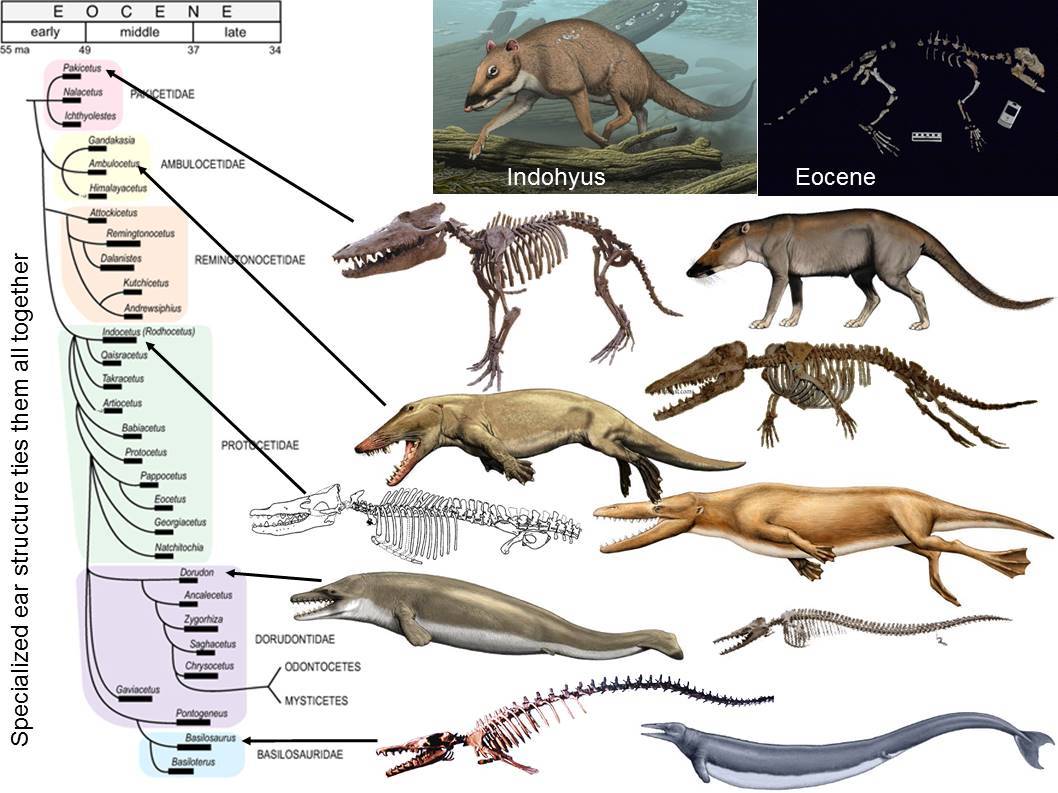WHAT ON EARTH!? ? ?
Did you really write that?
Surely I must be misunderstanding this discussion …
Did you just suggest that evolution from Artiodactyl to Whale could take place WITHOUT mutations? Is this part of that older “madness” about evolution just being a change in allele ratios?
Unless there is already a WHALE in that gene pool somewhere … we are NEVER going to get a whale without mutations …
If I’m misunderstanding the “Index of Facetiousness” or the “Barometric Hyperbole of Sarcasm” in this particular discussion, just let me know … and I’ll take a nap.
George
[Image below focuses on EAR STRUCTURES for various whale phenotypes… fairly interesting …]
